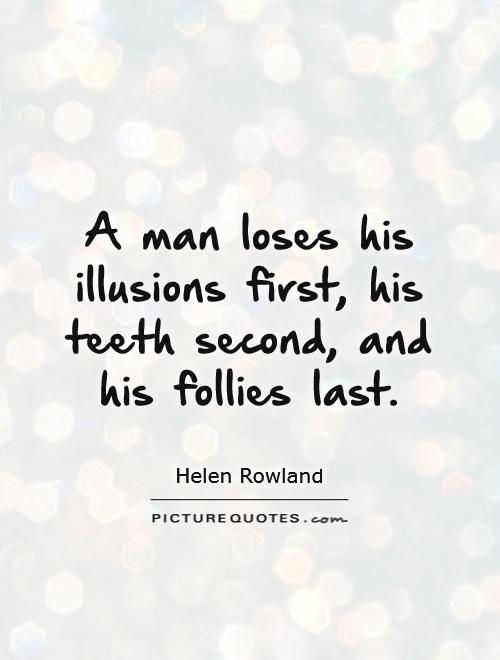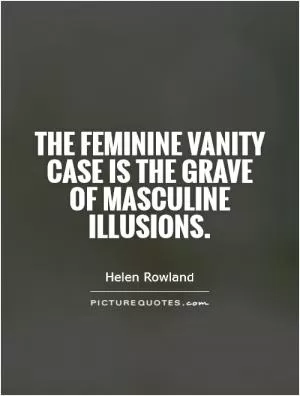A man loses his illusions first, his teeth second, and his follies last

A man loses his illusions first, his teeth second, and his follies last
Helen Rowland, a popular American writer and humorist in the early 20th century, was known for her witty and insightful observations on relationships, love, and human nature. One of her most famous quotes is, “A man loses his illusions first, his teeth second, and his follies last.” This quote encapsulates the idea that as we age and gain life experience, we become more aware of the harsh realities of the world, lose our youthful naivety, and eventually come to terms with our own shortcomings.The first part of the quote, “A man loses his illusions first,” speaks to the idea that as we grow older, we begin to see the world for what it truly is. We may start out with grand dreams and idealistic beliefs, but as we encounter setbacks, disappointments, and failures, we slowly come to realize that life is not always fair or kind. Our illusions about love, success, and happiness are shattered, and we are forced to confront the harsh truths of reality.
The second part of the quote, “his teeth second,” is a humorous nod to the physical effects of aging. As we get older, our bodies start to show signs of wear and tear, and our once youthful appearance begins to fade. Losing our teeth is a common occurrence as we age, and it serves as a reminder of our mortality and the passage of time. It is a physical reminder that we are not invincible, and that our bodies will eventually succumb to the ravages of time.
The last part of the quote, “and his follies last,” suggests that even as we age and gain wisdom, we are still prone to making mistakes and foolish decisions. Despite our best efforts to learn from our past experiences, we are not immune to folly and folly can still rear its head in our lives. This part of the quote serves as a reminder that no matter how much we may learn and grow, we are still human and fallible.












 Friendship Quotes
Friendship Quotes Love Quotes
Love Quotes Life Quotes
Life Quotes Funny Quotes
Funny Quotes Motivational Quotes
Motivational Quotes Inspirational Quotes
Inspirational Quotes